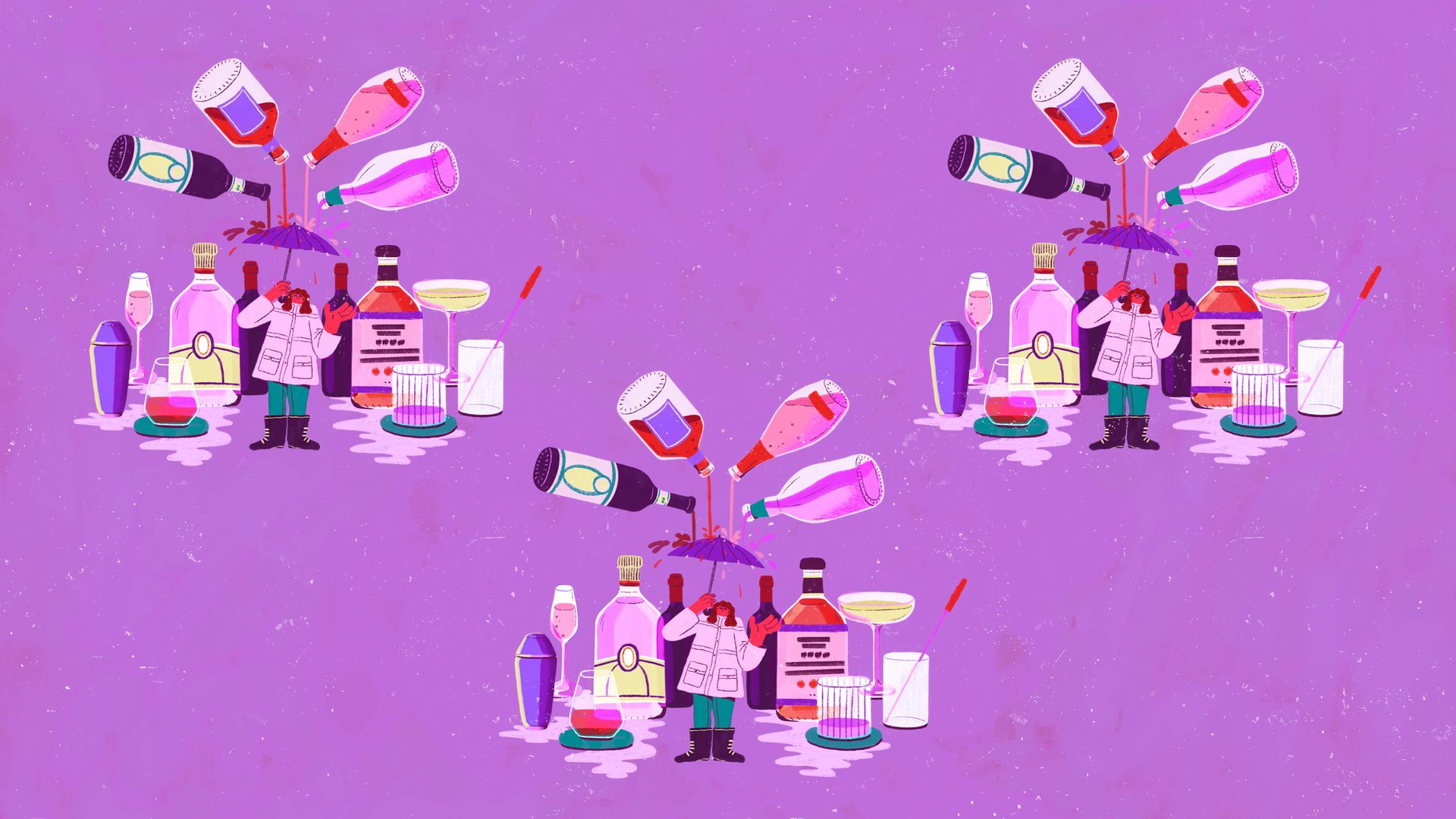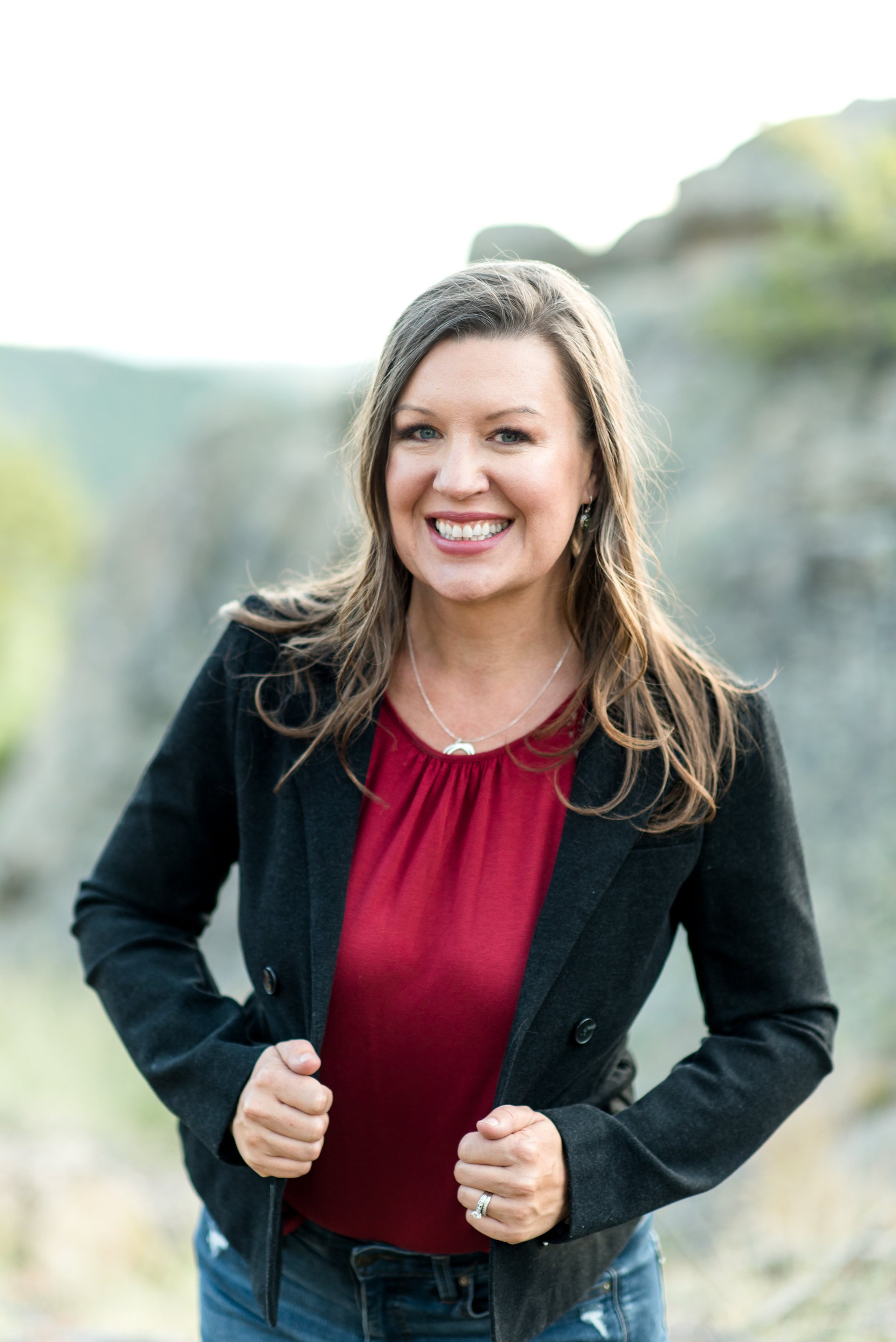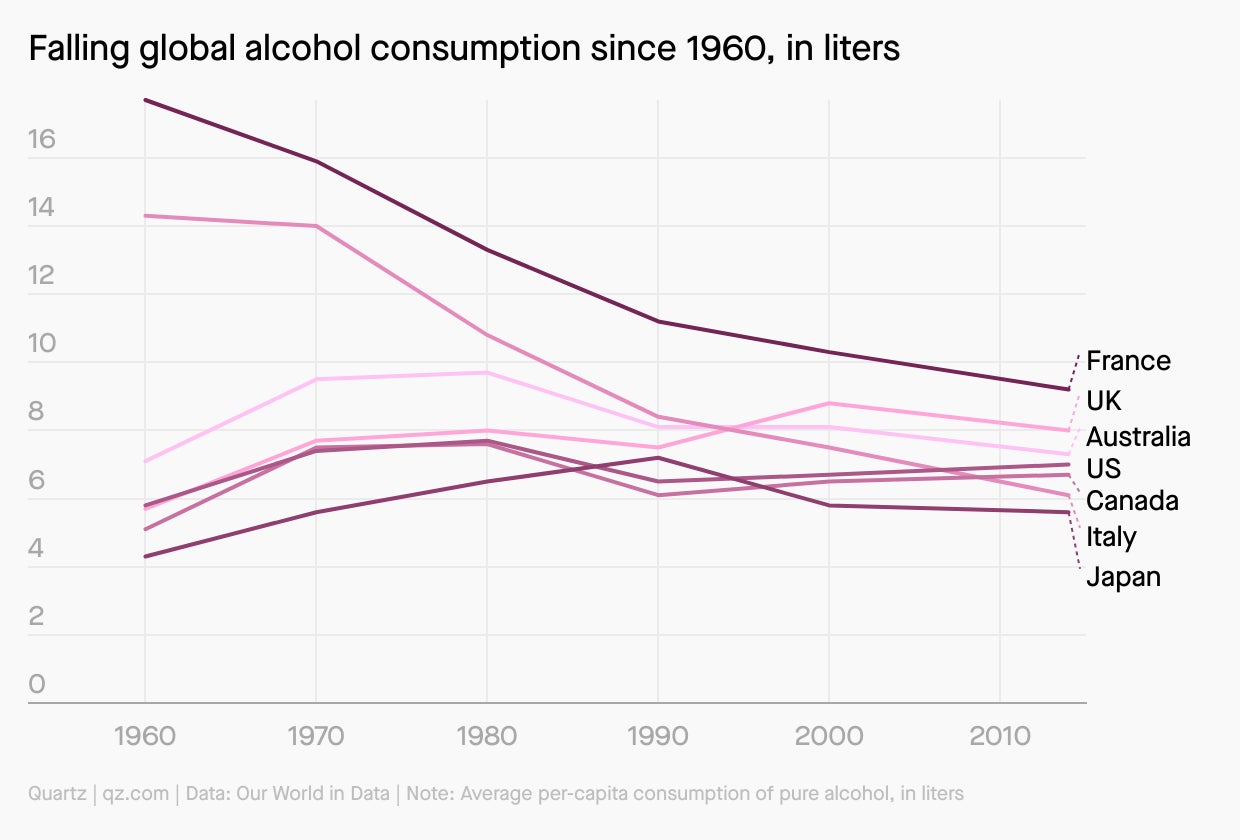For members: The joy of sobriety
[qz-guide-hero id=”434622465″ title=”💡 The Big Idea” description=”The new sobriety movement frames not drinking alcohol as a positive lifestyle choice that anyone might make.”]


[qz-guide-hero id=”434622465″ title=”💡 The Big Idea” description=”The new sobriety movement frames not drinking alcohol as a positive lifestyle choice that anyone might make.”]
By the digits
72: Alcohol’s harmfulness score, out of 100, making it the number-one most harmful drug to individuals and society, according to a landmark 2010 study
57%: Proportion of the global population that hasn’t had a drink in 12 months
6.5 million: People in the UK who said they participated in Dry January in 2021, up from 3.9 million the year before
40%: Americans in a 2019 poll who said they were drinking less than they were five years prior
46%: Proportion of the US drinking-age population has tried a non-alcoholic beer or cocktail
Hey, are you on Clubhouse? Us, too. Join us on Thursday, March 18 at 4pm ET for a discussion about all things sobriety with writer Sarah Todd and deputy membership editor Alex Ossola.
The billion-dollar question
Is there money to be made from people not drinking?
Yes. Sober people still go out and enjoy an alcohol-free beer or well-crafted mocktail to decompress, and companies are lining up to help them do it. Over the past five years or so, a flood of books, podcasts, alcohol-free bars, ready-to-drink mocktails, and even alcohol-free dating apps have emerged to support the idea that sober living can be fun. Bars serving alcohol-free cocktails are popping up in cities like New York and Austin, Texas. Increasingly, researchers are pushing beverages further into hangover-free or more nutritious territory in an effort to capture the market of the wellness-minded drinker.
One big number
30%: 2020 sales growth of low- and no-alcohol beverages in the US and in the UK
Read more about the sobriety movement, and who these beverages are for.
Charting falling global alcohol consumption
Sobriety is a hit beyond the US—here’s how countries’ overall alcohol consumption has changed since 1960.
Person of interest: Annie Grace

Among the most influential people in the new sobriety movement is Annie Grace, author of the books This Naked Mind and The Alcohol Experiment. She runs two digital recovery programs and hosts a twice-weekly podcast.
Grace, who got sober in her 30s and previously worked in marketing, counsels that it’s possible to rid oneself of the desire to drink—thereby making sobriety not a struggle, but an easy choice. When you change your perspective on alcohol, she writes in This Naked Mind, “you begin to see the truth about drinking. When this happens, no willpower is required, and it becomes a joy not to drink.”
Another crucial Grace tenet is that the term “alcoholic” isn’t always useful. Grace wants to do away with this divide between alcoholics and normal drinkers, instead pushing society toward acknowledging that people don’t have to wait for their problem to worsen before quitting drinking.
Commonly held question
If I think I have a problem with alcohol, where do I start?
Even if you’re not ready to jump into the sober lifestyle, maybe you’ve been thinking about your relationship with alcohol. That’s a great and healthy start! We asked some medical experts, addiction counselors, and sobriety advocates about what to do if you’re starting to reassess your drinking habits. Here are three of their tips:
🍹 Know the signs of alcohol use disorder
🤔 Consider how drinking impacts your daily life
⏰ Take a break from alcohol
Fun fact!
Alcohol-free beer company Athletic Brewing Company won Brewer of the Year in 2020’s International Beer Challenge, beating out its alcoholic competitors.
DIY: How companies can better support sober employees
Before the pandemic, alcohol was a central part of how many people socialized with their coworkers. But the research is clear that alcohol negatively impacts productivity and company performance. Here are a few ways experts suggest companies support the abstainers and those who are just seeking to cut back, during the pandemic and beyond.
🤔 Understand what it means to quit drinking. Before an organization makes sober-friendly changes, its leaders should interrogate their own belief systems and biases around alcohol and its role in the workplace.
💁 Hire caterers who have followed the sober-curious trend. Though there are still industries in which companies build bars and “speakeasies” as employee amenities, heavy drinking at industry events is outdated.
🍽 Choose restaurants over pubs, or bars with excellent non-alcoholic drinks. People can bond over food, so choose restaurants instead of bars when you’re looking for a local hangout for a team gathering.
📣 Sound off
Have you experimented with sobriety?
In last week’s poll about telehealth and the future of medicine, about half of respondents said they’d keep using telemedicine after the pandemic. You’re on the cutting edge! Or maybe just like convenience.
